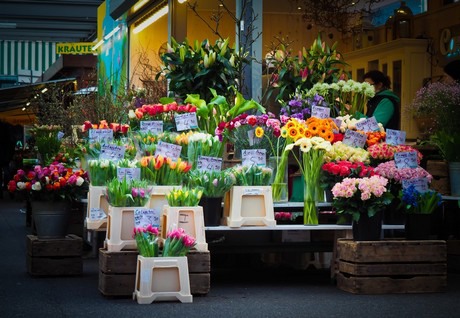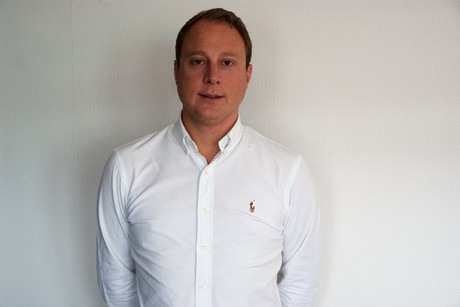The barcode registration of flowers and plants in Swedish retail stores are far behind that of the fruit and vegetables. In the majority of the chains, no barcodes are used on flowers and plants, so no sales data can be gathered. One of Sweden's largest food retailers Axfood decided to change it and started to implement barcodes for their ornamental products in one of their supermarket chains two years ago. The data was surprising and adjustments accordingly resulted in significant, up to four times, higher sales of the flowers and plants in the chain.
Axfood
The Axfood conglomerate consists of various parts. Purchasing and logistics is handled by Dagab and for fruit, vegetables and flowers they have their office and warehouse in Helsingborg. From this location, they supply their retail chains.
Providing barcodes
For years, a third party company took the whole responsibility of the flowers and plants in their stores and two years ago, they decided to do it themselves. "During my first year as Category Manager of flowers and Plants, we had absolutely no idea of what we sold in our Willy's stores”, says Axfood's Henrik Astrom. So, the first step was to start analyzing the assortment by securing barcodes on all of our products in the segment. In this way, we really could see what sells at each point."It was a challenge for them to provide all 750 different plants and flower articles with a barcode and took them approximately one year. "We invested both a lot of time but also a change of mindset from growers/suppliers point of view. After this change was implemented we could follow our goods throughout each store and how they perform, which was important information for us."
Data
After gathering the data, they quickly noticed that they were not selling the products as expected. "Our assortment consisted of 750 articles and according to the data, 20 percent of the articles accounted for 80 percent of the sales." So, one of the first things they did, was narrowing down the assortment. "Swedish people are very selective on colors and comparing with other countries, less colors are in demand. Pink and white for example, are very popular, but yellow in contrast - except during Eastern - is a color that does not sell. So, the yellow flowers were one of the first we threw out."
Changes
Besides offering a more tailored assortment, they also wanted to offer an assortment with higher quality products. Firstly, they started to supply less flowers and plants but more times a week. "Instead of 1-4 times, we now supply these articles 5-7 times a week, just like the fruits and vegetables."And they do not only supply them as often as their fruit and vegetables, they also supply them with this fresh produce. All their goods are being supplied in boxes on pallets, including the flowers that used to be shipped in buckets. "We now have an outstanding logistic chain for supplying flowers and plants with high quality." Thirdly, they assigned some employees of the fruit and vegetables department in the store to take care of the flowers and plants and check them twice a day instead of 1-4 visits a week. Finally, they decided to import more 'luxurious' products. "We now, for example, choose for roses with a larger head size and phalaenopsis with more buds per stem"
Results
All in all, the changes resulted in a significant increase in sales and a decrease in waste. "Selling cut roses in a retail store is quite challenging, but we received great feedback." After testing this program for 12 weeks (till week 25) in one Willy's store, they started to implemented it at more stores over the summer. Currently all changes are implemented at their 200 Willy's stores and they are very satisfied with the results. "At some stores, the sales were 4 times higher."
Future plans
"Everything is new for all of us, from warehouse, to in-store workers so first of all we have to focus the chains, Willy's and Tempo, that we now supply with flowers and plants. We will of course see how the market will react and take action to consumer opinions. Besides that, they see a lot of potential for Axfood Närlivs, that focuses on smaller shops that mostly have a convenience segment, such as night shops and filling station shops. "We supply around 6,000 convenience stores and the potential of supplying them with fresh flowers directly from the grower is enormous."
For more information
Axfood
Henrik Astrom
+ 46 42 295408




